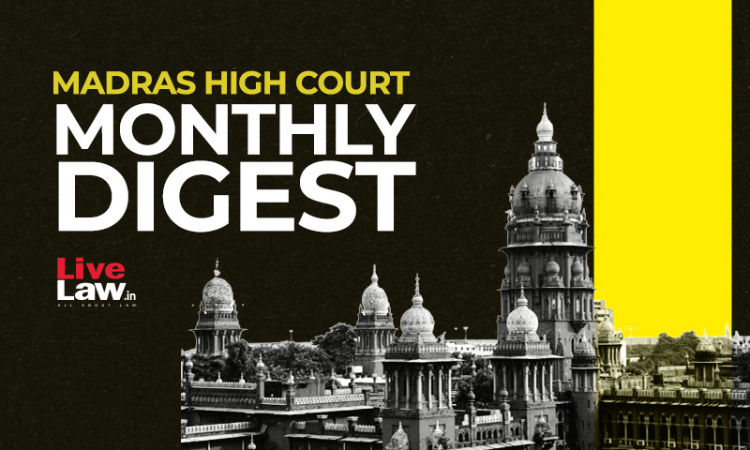- Home
- /
- High Courts
- /
- Madras High Court
- /
- Madras High Court Monthly Digest -...
Madras High Court Monthly Digest - May 2024
Upasana Sajeev
4 Jun 2024 9:30 AM IST
Citations: 2024 LiveLaw (Mad) 181 To 2024 LiveLaw (Mad) 227 NOMINAL INDEX H Raja v State, 2024 LiveLaw (Mad) 181 Safai Karamchari Andolan v Union of India and Others, 2024 LiveLaw (Mad) 182 Ms. Monisha v The National Testing Agency and another, 2024 LiveLaw (Mad) 183 State of TN & Ors Vs. C. Arnold, 2024 LiveLaw (Mad) 184 S. Madhavan vs M/s THG Publishing Pvt....
Next Story



